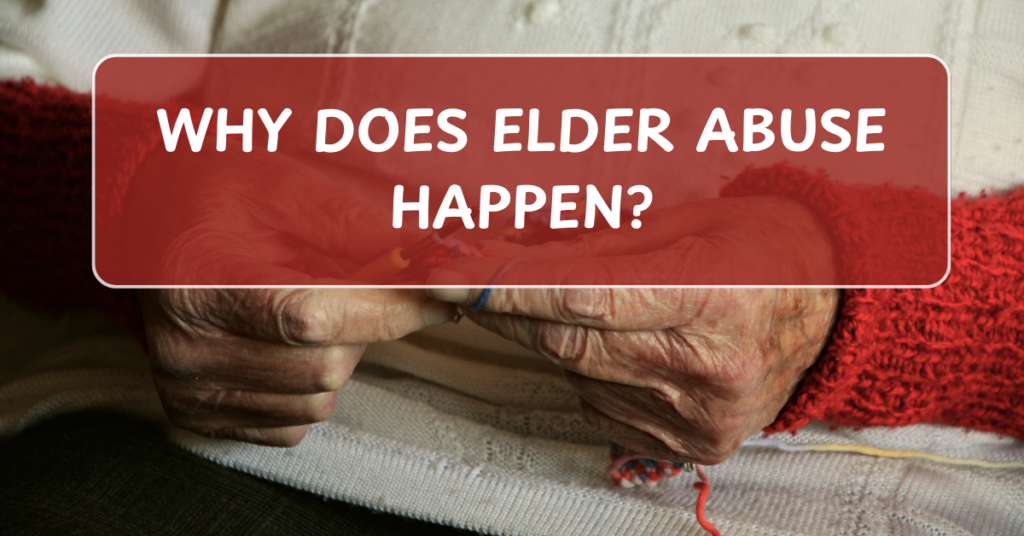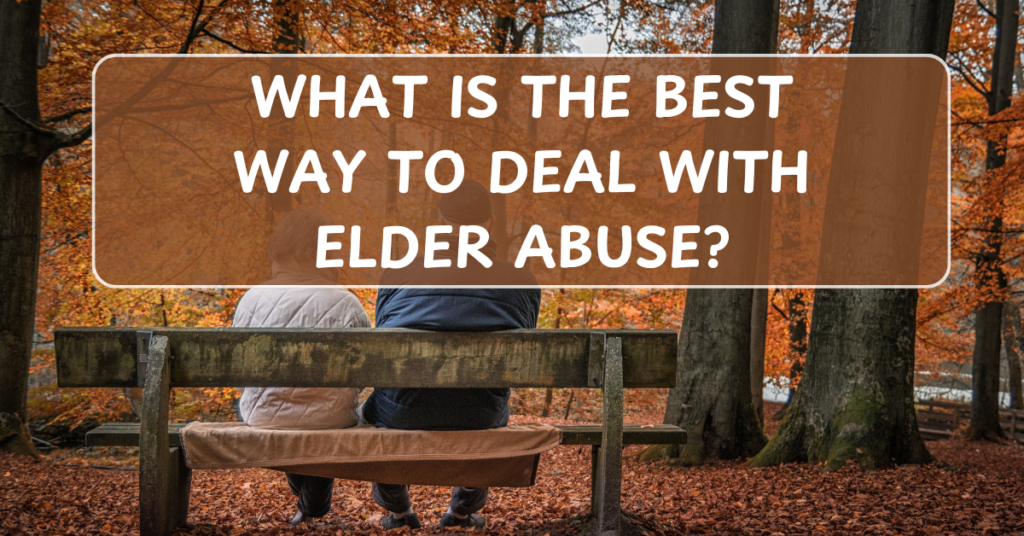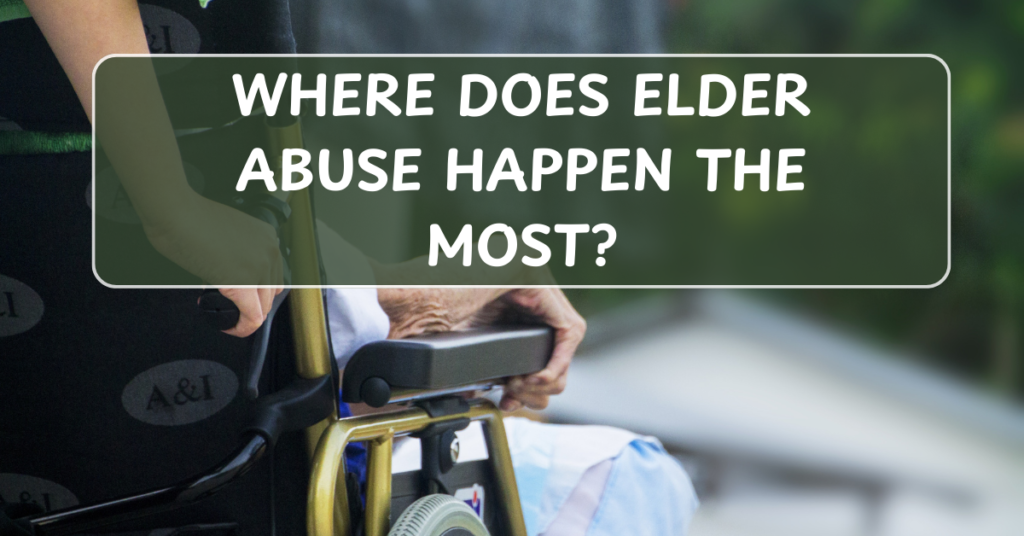
1. Caregiver Stress and Burnout
Many cases of elder abuse occur at the hands of family members or caregivers who are responsible for looking after an older person. Caregiving can be emotionally and physically exhausting, especially if the elder has chronic health issues, dementia, or mobility problems.
- High Expectations and Pressure: Caregivers may feel overwhelmed by the constant demands of care, leading to frustration, stress, and, at times, mistreatment of the elder.
- Lack of Support: Caregivers who don’t have adequate help or respite may struggle with exhaustion and mental health challenges, which can sometimes result in neglect or emotional abuse.
- Financial Strain: The financial burden of caregiving can create additional stress and resentment, particularly when the caregiver is not receiving compensation or assistance.
2. Lack of Education or Training
Some caregivers, especially those who take on the role without prior experience or training, may not know how to properly care for an elderly person. This lack of knowledge can lead to unintentional neglect or mistreatment.
- Physical Neglect: Caregivers may not know the proper way to handle the physical needs of an elder, leading to neglect in areas like personal hygiene, nutrition, and medication management.
- Misunderstanding Behaviors: Caregivers who are unfamiliar with the signs of cognitive decline or mental illness may misinterpret an elder’s behavior and react negatively or abusively.
3. Dependency and Vulnerability of the Elder
Elder abuse often arises from the vulnerability of the elderly person, who may rely heavily on others for physical, emotional, or financial support. This dependency can make older adults easy targets for exploitation or mistreatment.
- Physical Frailty: Elders with limited mobility or health conditions are more vulnerable to physical abuse or neglect.
- Cognitive Decline: Those with dementia, Alzheimer’s, or other cognitive impairments may have difficulty communicating or understanding the situation, making it harder for them to defend themselves or seek help.
- Isolation: Elderly individuals who are isolated from family or social networks may be more susceptible to abuse because they lack support systems that could notice or intervene.
4. Financial Exploitation
Elder abuse often involves financial exploitation, where caregivers or others take advantage of an elder’s assets or finances for personal gain.
- Inheritance Greed: Family members or caregivers may abuse their position to gain access to the elder’s savings, property, or inheritance.
- Control Over Assets: Abusers may isolate the elder from others and gain control over their financial decisions, sometimes using the elder’s money to fund their own lifestyle.
5. Societal Attitudes Toward Aging
In many societies, there is a cultural tendency to overlook or dismiss the needs and rights of older adults. Ageism, or prejudice against older people, can contribute to the prevalence of elder abuse.
- Disrespect for Elders: In some cases, society’s general disregard for older people’s needs or autonomy may contribute to the normalization of abuse.
- Underreporting: Elder abuse is often underreported because society may not fully recognize or acknowledge its existence, making it more difficult to detect and prevent.
- Stigma: Elders may fear social stigma or not want to burden their families, leading them to remain silent about their abuse.
6. Mental Health Issues in the Abuser
In some cases, the abuser may have underlying mental health issues or emotional problems that contribute to abusive behaviors.
- Depression or Anxiety: Mental health struggles such as depression or anxiety may cause the abuser to lash out, neglect, or manipulate the elder in their care.
- Substance Abuse: Caregivers or family members who abuse drugs or alcohol may be more prone to abusive behavior, as substance use can impair judgment and self-control.
7. History of Abuse or Dysfunctional Relationships
Elder abuse can sometimes be the continuation of a pattern of abuse from earlier in the elder’s life or from a history of dysfunctional relationships.
- Cycle of Abuse: If the elder was abused earlier in life, they may be more likely to tolerate abuse as they age or may not recognize it as abusive.
- Previous Dysfunction: In some families, long-standing patterns of dysfunctional relationships or unresolved conflict can contribute to an abusive dynamic in elder care.
8. Lack of Oversight in Care Facilities
Abuse in institutional settings like nursing homes or assisted living facilities can occur when there is insufficient oversight or when staff members are not properly trained or supervised.
- Inadequate Staffing: Overworked or undertrained staff in care facilities may neglect or mistreat residents due to high turnover, low pay, or lack of proper supervision.
- Facility Negligence: Some care homes may not have proper safeguards or policies to detect or address abuse, leading to an environment where mistreatment can thrive.
9. Emotional or Psychological Factors
Abusers may also manipulate or mistreat elders as a result of their own emotional needs or insecurities.
- Power and Control: Some individuals may abuse their position of power over the elder, using emotional or psychological tactics to maintain control or dominance in the relationship.
- Resentment or Anger: The abuser may harbor resentment or frustration toward the elder due to past conflicts or unresolved emotional issues, leading to verbal or emotional abuse.
Conclusion
Elder abuse is a multifaceted issue, stemming from a combination of caregiver stress, societal attitudes, financial exploitation, and more. It is essential to recognize these underlying factors to better prevent and address elder abuse. By increasing awareness, providing support for caregivers, and ensuring proper oversight, we can reduce the incidence of elder abuse and help protect older adults from harm.


